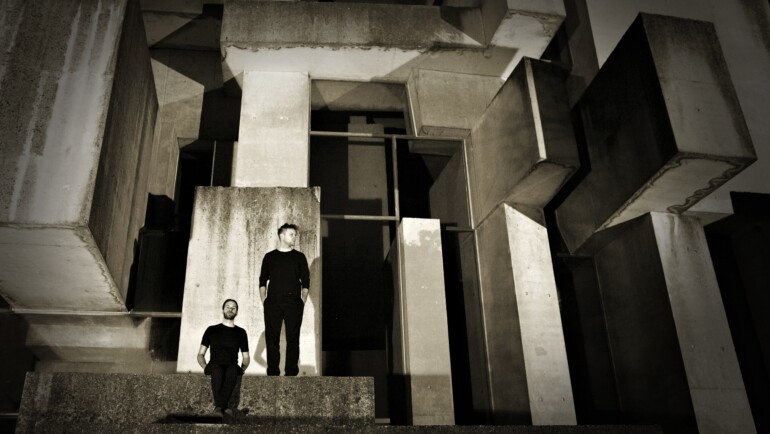
The duo Nimikry has been announced as the winner of the 2023 Erste Bank Composition Prize; their Wien Modern concert with the Klangforum Wien will take place on November 28th at Vienna’s Konzerthaus.
In the words of the jury, Nimikry composes “with a performer’s eye for the creative process; as performers, they closely approach the spirit of composition; and as tech-friendly modernists, they combine performative and compositional goals with the development of new technologies for instrumental performance and sound creation.” In plain English: Rafał Zalech and Alessandro Baticci can do a lot of things, most of all with their instruments – which, no doubt, is why they are the first duo to receive one of contemporary classical music’s most prestigious composition awards.
The Virtuosi
The flautist Baticci and the violist Zalech are unusually gifted instrumentalists, and they are dedicated to the augmentation and extension of their instruments, a quest that is most obvious in the fact that both of their instruments are hooked up to electronics. “It was a compositional necessity to look at the instrument in a new way,” Baticci explained in October. The electronic augmentation allows both the development of new sounds and the “translation of acoustic instruments’ expression into the digital world.” To understand the significance of that statement, it helps to remember that, for the last two centuries(!), hardly any major developments have taken place in the realm of string or wind instruments.
Zalech and Baticci are bent on changing that, so they connect, they splice, they patch: analog with digital, past with future, classical music with noise, and tradition with innovation. In the end, Nimikry isn’t concerned with ‘contemporary’, ‘classical’ or ‘electronic’ music: “Our development is really a necessary step in music, in instrument construction, in art generally,” says Baticci.
The neo-Humanists
If that sounds like start-up spirit; it’s no wonder. Baticci and Zalech are well-traveled, freethinking associates of ensembles like the Black Page Orchestra, but they’re increasingly appearing as entrepreneurs as well. For all their complexity, though, the duo isn’t just careening blindly into the future. Their goal is to “heighten the resolution of their playing,” without losing the “old-fashioned handcraft of the instrument”: embracing digitalization, but not at the expense of the human element – a “neo-humanist mission”, as Baticci put it in a 2020 interview.
“Musicianship has to be implicit in the sheet music, the way it is with Furrer or Sciarrino,” Baticci says. “We’re not looking to simplify our instruments, but to extend them.” The Klangforum Wien agrees; Baticci and Zalech have been associated with the ensemble for some time. In 2021, the Klangforum premiered Nimikry’s work “Birds of Paradise”, in which augmented strings were used to process the sound electronically.
The Producers
Their upcoming concert at Wien Modern will be more diverse: as Baticci describes it, the work, titled “Rhizomatic Studies,” repeatedly puts down new roots, beginning as an etude, only to break off and wander from section to section. Some of the sections only fit together in contrast to one another; others – Baticci grins – “make no sense at all.” An augmented string orchestra begins next to the classical ensemble, inching closer and closer until it finally ends up in front. A cheap trick, he admits, but since the brain takes time to put all the pieces together, it opens up a broad space.
Just how much stretching the Mozart Hall at the Konzerthaus will take will be up to Baticci and Zalech, who will be behind the mixing board sans instruments. “We’ll be standing at the controls, but we’re not playing.”
Christoph Benkeser, translated from the German original and edited by Philip Yaeger.
